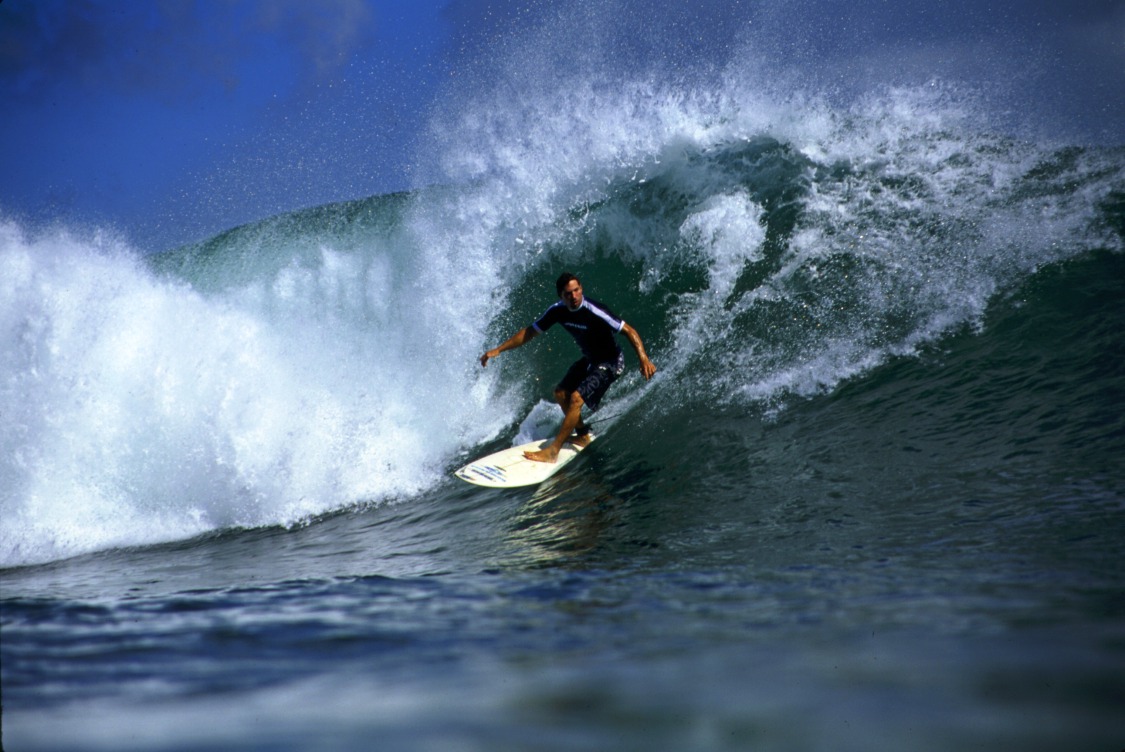|
||||||
|
SPORTS
Water Sports
A great number of dive operators offer gear, tanks, wetsuits, lunch, transport, experienced dive masters, excellent Balinese-style accommodations. |
|
|
The surf breaks for which Bali is famous are at Uluwatu and Padang, best when the southeast winds blow onshore during the dry season. During the wet (Jan.-March) surfers nip over to the other side of Bukit Peninsula to Nusa Dua, Sri Lanka, and Sanur where the wind will be offshore. Surfing is the big attraction of the offshore island of Nusa Lembongan; three of Indonesia's most outstanding surf breaks are here.
One of Bali's nicest and least known beaches--with good swimming and warm water--is located next to the airport in Tuban and Jimbaran. Off Kuta Beach the waves can be very deceptive; seven or eight people drown each year, caught in the vicious undertows. For your own safety, swim only between the clearly marked red and yellow flags, and don't swim deeper than your body length. Lifesavers constantly patrol the beach during daylight. Never swim after sunset.
You can enjoy dolphin-watching in the early morning in Candidasa and Lovina. Catering to Japanese demand, fleets of game fishing boats are based in Benoa, Bali's main port. One of the favorite sportfishing spots for wahoo, Spanish mackerel, and tuna is under the awesome 100-meter-high cliffs of Nusa Penida.
A wonderful
diversion is Rafting Tours, down the 11-km-long Ayung River; you'll
find brochures on hotel reception desks all over
Bali. With four, five, or six persons per raft, the Class III
trip runs about two hours through
Bali's last original rainforest--a botanist's delight. The
price includes a big, delicious catered buffet. Just dangerous enough to
be scary but definitely not life-threatening.
Fighting cocks are given the greatest loving care, massaged, bathed, and trained every day. Their feathers, combs, and wattles are trimmed so they won't provide a beakhold for opposing birds. The owner concentrates on the bird's diet and strives to develop a lean and tireless fighter. Pet, mascot, child, dream, income, the owner always carries the bird around the courtyard and to the warung or clubhouse. Their bell-shaped wicker cages are placed at roadsides so the cocks may be amused by passersby.
Two cocks eager to
fight are decided upon, then bets are placed. A village will put as much
as a million rupiah on its favorite cock. Then the fight is blessed.
Evil spirits receive offerings that will hopefully satisfy them and
ensure a good harvest. The birds are teased by their handlers--tails
pulled, feathers ruffled, palm wine spit down their throats, all
intended to arouse the fighting spirit. The trainers then tie a sharp
scissor blade to each cock's stronger leg. The birds are riled up some
more, then let go. Predominantly a male-bonding event, the crowd is
fused in a single gesticulating, shouting, hysterical body. The fight is
often finished in 15-20 seconds. The cocks display amazing ferocity even
when crippled. If both refuse to continue they're put inside an
upside-down basket, where one almost always kills the other. Often a
badly wounded cock can be revived by artificial respiration or special
massages. Then it will fight again, and win. |
|

